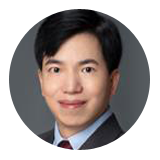Invited Speaker

Dr. William Cho
Scientific OfficerDepartment of Clinical Oncology, Queen Elizabeth Hospital, Hong Kong, China
Speech Title: Molecular diagnostic and therapeutic potentials for the recurrence of non-small cell lung cancer
Abstract: About 80-85% of lung cancers are non-small cell lung cancer (NSCLC), which is the leading cause of cancer-related death in the world. Surgery is the potentially curative treatment for early-stage NSCLC patients. However, 30-55% of patients with NSCLC develop recurrence despite curative resection. Thus, the identification of genetic alterations related to recurrence in NSCLC patients may help better stratify high-risk individuals and guide treatment strategies. Targeted therapy is another treatment modality for NSCLC. Nevertheless, drug resistance is a major cause for therapeutic failure in NSCLC leading to tumor recurrence and disease progression, the personalized prediction of therapeutic resistance, recurrence or metastatic disease progression still remains an unsolved problem. Our previous studies attempted to identify the molecular biomarkers of recurrence and drug resistance in NSCLC. Besides, we also tried to find the biomarkers and therapeutic targets that play critical roles in the tumorigenesis of NSCLC. In this presentation, I would like to share my studies on the identification of genetic alterations in recurrence and the plausible mechanism(s) involving in resistance and recurrence, finally end up with some studies on the treatment of NSCLC.
Biography: Dr. William Cho is a Chartered Scientist, a Registered Chinese Medicine Practitioner, Guest Professor of a number of Universities and a Fellow Member of several institutes, including the Institute of Biomedical Science (UK), Hong Kong Institute of Biomedical Science and Hong Kong Society for Molecular Diagnostic Sciences. Dr Cho has published over 300 peer-reviewed papers, e.g. Lancet Oncology, Nature Communications, Journal of Extracellular Vesicles, Clinical Cancer Research, Clinical Chemistry, Annals of Oncology, Theranostics; over dozen of books including "MicroRNAs in cancer translational research", "An omics perspective on cancer research", "Supportive cancer care with Chinese medicine", and over two dozens of book chapters. His current H-index is 42 with a total citations about 10,000 times.
